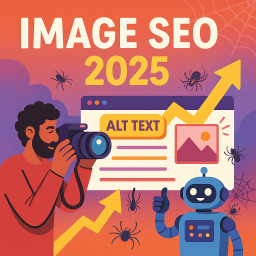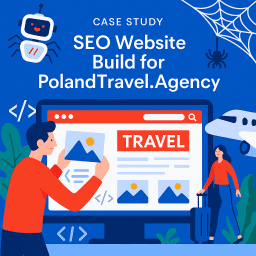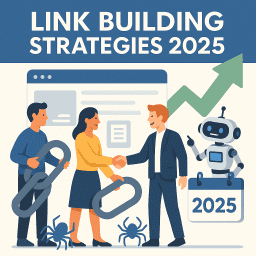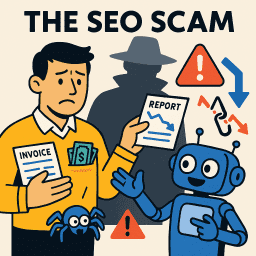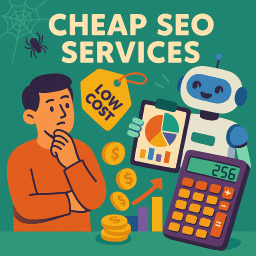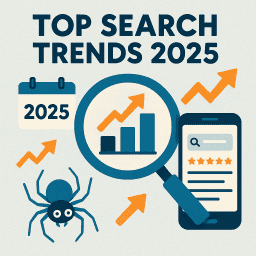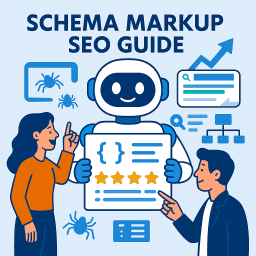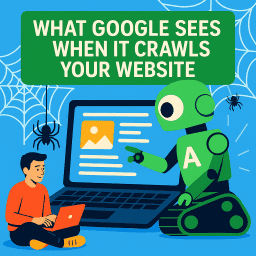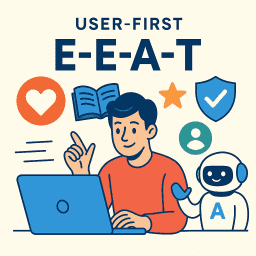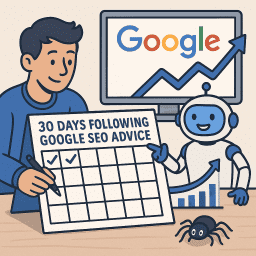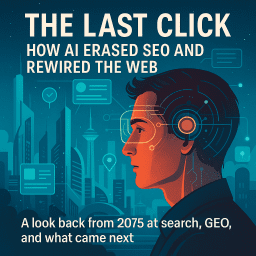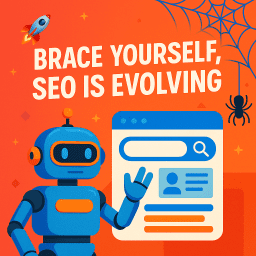E-E-A-T SEO 2025: Build Authority and Trust Online
Trust, expertise, and authenticity are ranking factors—here’s how to earn them
👑 How to Build E-E-A-T and Win Google’s Trust
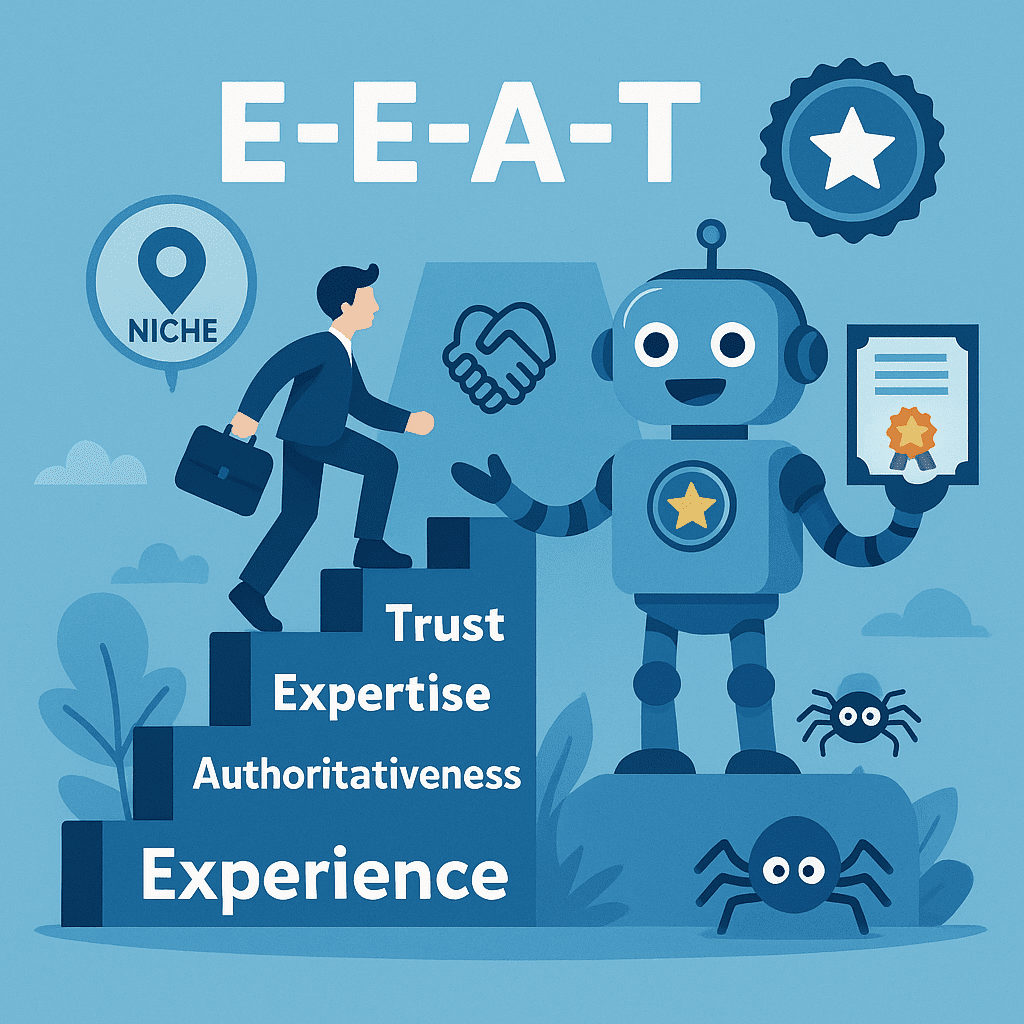
If you want to rank on Google in 2025, publishing keyword-optimised content isn’t enough. You also need credibility—and that’s where E-E-A-T comes in.
E-E-A-T stands for Experience, Expertise, Authoritativeness, and Trustworthiness. It’s not a traditional ranking factor like page speed or backlinks, but it’s absolutely central to how Google evaluates content quality—especially in sensitive niches like health, finance, and news.
In this post, we’ll show you what E-E-A-T is, why it matters more than ever, and how to build it systematically to earn better rankings and long-term trust in your niche.
🧠 What Is E-E-A-T?
Google introduced E-A-T (Expertise, Authoritativeness, Trustworthiness) in its Search Quality Evaluator Guidelines years ago. In late 2022, the concept was expanded to E-E-A-T, with the added “E” for Experience.
These guidelines are used by human quality raters to assess whether content is trustworthy and genuinely helpful. Google’s algorithm aims to reflect the same standards.
While E-E-A-T isn’t a “ranking factor” in the technical sense, it directly influences how well your content aligns with what Google wants to show in its results.
📊 Why E-E-A-T Matters for SEO
- 🔍 E-E-A-T plays a central role in evaluating YMYL content (“Your Money or Your Life” topics like health, finance, and safety)
- 📉 Low E-E-A-T can lead to drops during core updates
- 🤖 It’s especially important as AI-generated content floods the web—Google uses E-E-A-T to sort real expertise from fluff
- 📈 High E-E-A-T improves dwell time, click-through rate, and engagement—helping your rankings long-term
🔎 Evaluating Your Current E-E-A-T Signals
Start with a quick E-E-A-T audit. Ask yourself:
- 👤 Do your blog posts have author bios with real credentials?
- 🔗 Are you linking to reputable sources, not just internal content?
- 📝 Do you include original experience, case studies or stories?
- 🧾 Do you have privacy, contact, and editorial policy pages?
- 🌟 Are there any customer reviews, testimonials or third-party ratings?
If the answer is “no” to most of those questions—it’s time to make changes.
✍️ How to Build Experience and Expertise
- 👨🏫 Add detailed author bios to each piece of content
- 📄 Link bios to full author pages with credentials and experience
- 🧪 Include real-world experience: case studies, tutorials, or product reviews
- 👥 Invite subject-matter experts to contribute or co-author articles
- 🎓 Show qualifications, certifications or industry roles clearly
Experience is what makes your content believable. Expertise is what makes it valuable.
🏗️ Boosting Authoritativeness
- 🔗 Earn backlinks from trusted sites in your industry
- 🎙️ Speak on podcasts or participate in expert roundups
- 📰 Get mentioned in news articles, press releases, or trade publications
- 🧱 Build topic authority by clustering content around core subjects
- 📚 Get listed in recognised directories or associations
Authoritativeness isn’t just about your site—it’s about how others perceive your brand online.
🛡️ Establishing Trustworthiness
- 🔐 Use HTTPS and display clear contact information
- 📑 Publish editorial standards, disclaimers and privacy policies
- 📲 Make your site accessible, mobile-friendly and ad-light
- ⭐ Display reviews, testimonials, and product trust badges
- 🧾 Ensure that sponsored content is disclosed and transparent
🔁 Maintaining E-E-A-T Over Time
- 📅 Regularly update outdated content with fresh data or new insights
- 👥 Monitor author credentials and update team bios as roles evolve
- 🗞️ Set up Google Alerts or Brand24 to track mentions
- 💬 Respond to customer reviews and correct misinformation
- 📊 Revisit content strategy quarterly using E-E-A-T as a benchmark
💬 What the Experts Are Saying
- Marie Haynes: “E-E-A-T is one of the most important concepts in SEO. It’s how Google protects users from misinformation.”
- John Mueller (Google): “We look at things like transparency, reputation, and expertise—especially for content that affects people’s health or money.”
- Lily Ray: “Google wants to rank trustworthy, people-first content. Real experience and author credibility are more important than ever.”
- Aleyda Solís: “Trust and authority can’t be faked. You have to earn them with consistency, clarity, and quality.”
✅ Conclusion
E-E-A-T is not a trick—it’s a reflection of what your brand really stands for. If you want better rankings in 2025, don’t just optimise your content. Optimise your credibility.
That means showcasing real expertise, building genuine authority, and becoming a trustworthy voice in your niche. When users trust you, so will Google.
Also Read:
How to Build an Author Profile That Enhances E-E-A-T in 2025
User-First E-E-A-T: What Actually Drives SEO and GEO
📝 Recap and Clarify: Post-Specific FAQs
What does E-E-A-T stand for in SEO?
E-E-A-T stands for Experience, Expertise, Authoritativeness, and Trustworthiness. It’s a framework Google uses to assess content quality and credibility—especially for sensitive topics.
Why is E-E-A-T important for ranking on Google?
Google uses E-E-A-T signals to determine if your content can be trusted. Strong E-E-A-T helps improve rankings, especially in competitive or YMYL (Your Money or Your Life) niches.
How can I show experience in my content?
Share personal insights, case studies, and first-hand knowledge. Use real-world examples to prove you’ve actually done or used what you’re writing about.
What’s the best way to prove expertise on my site?
Include detailed, accurate information backed by data. Highlight author credentials, qualifications, and experience in your bio and About page content.
How do I build authority in a niche?
Publish consistent, high-quality content around one topic cluster. Earn backlinks, mentions, and engagement from other credible sources within your industry.
What makes a site trustworthy to Google?
Trust is built through clear contact info, privacy policies, secure HTTPS, external validation, and transparent ownership—along with honest, helpful content.
Does Google use E-E-A-T as a direct ranking factor?
Not directly—but it influences many ranking signals. Google’s quality raters use E-E-A-T to evaluate content, and its algorithms are designed to reward content that reflects these qualities.
Do author bios matter for SEO in 2025?
Yes. Including detailed author bios with credentials helps establish both expertise and trust. It’s especially important for health, finance, or legal content.
Can small websites compete on E-E-A-T?
Absolutely. Small sites can outperform big brands by being more focused, authentic, and transparent. E-E-A-T isn’t about size—it’s about value and credibility.
What’s one quick win to boost E-E-A-T today?
Add or improve your About page and author bios. Make sure they clearly explain who you are, why you’re qualified, and how users can trust your content.
Google doesn’t just want content—it wants proof you know what you’re talking about. – David Roche


